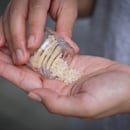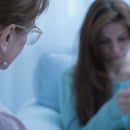
Social Media, HIPAA and You
A nursing student, happy to be in the hospital, asked for and received permission to photograph a pediatric patient. She posted the picture and happy comments which included the room number on her social media account; and when discovered by the facility and her school, was expelled from nursing school and the nursing school was banned from the facility.
Don’t let this be YOU.
Nurses have been using social media since its inception. However, there are many pitfalls that may adversely affect the nurse’s career, because of the risk of protected information disclosure.
The National Council of State Boards of Nursing (NCSBN) states that any breach of trust associated with the nurse/patient relationship ultimately harms not only the nurse but the nursing profession (Everynurse.org, N.D.).
The most important thing a nurse can do when using social media is to avoid speaking negatively about a patient or workplace.
Nurses Should Not Use Social Media to:
- Complain about or comment on the health of patients
- Potential HIPAA violation
- May damage the perception of others about your character
- Post photographs or videos of patients
- Even if you have permission to take the photo/video
- Patients can be easily identified from the photo/video which is a violation of HIPAA
- Speak negatively about their place of employment
- Jeopardizes nurses’ job security
- May result in disciplinary action
- Sheds a bad light on the organization
- Blow off steam regarding work-related issues
- Use offensive language or voice offensive comments
A 2010 survey conducted by the National Council of State Boards of Nursing (NCSBN) indicated an overwhelming majority of responding Boards of Nurses (BONs) – 33 of the 46 respondents – reported receiving complaints of nurses who have violated patient privacy by posting photos or information about patients on social networking sites. The majority – 26 of the 33 – of BONs reported taking disciplinary actions based on these complaints. Actions taken by the BONs included censure of the nurse, issuing a letter of concern, placing conditions on the nurse’s license or suspension of the nurse’s license (National Council of State Boards of Nursing (NCSBN), 2011).
Remember to maintain professional boundaries with the use of social media. Like in-person relationships, the nurse has the obligation to establish, communicate and enforce professional boundaries with patients in the online environment. Use caution when having online social contact with patients or former patients. Online contact with patients or former patients blurs the distinction between a professional and personal relationship. The fact that a patient may initiate contact with the nurse does not permit the nurse to engage in a personal relationship with the patient (NCSBN, 2011).
Does your workplace have a social media page? If it does, ensure that you know the facility’s policy regarding what can be posted on this page. It is also important to understand that each facility has a policy about what can and cannot be accessed from the facility computers.
Important to note – even if you delete your post, it is not permanently deleted! Everything you post, even between individuals on social media can be leaked to the public or copied and pasted to others with whom you had no intention of sharing.
However, there are many positive ways to use social media. For instance, educating the public regarding a disease process, creating awareness about preventative health campaigns, and participating in discussion groups or blogs. These social media groups can have the advantage of providing support to and from nurses during difficult times. Social media has its place today. However, the nurse needs to stay vigilant that s/he does not violate HIPAA.
References
A Nurse’s Guide to the Use of Social Media.
NCSBN. (2011). White paper: A nurse’s guide to the use of social media.
Everynurse.org. (N.D.). How nurses should be using social media.




